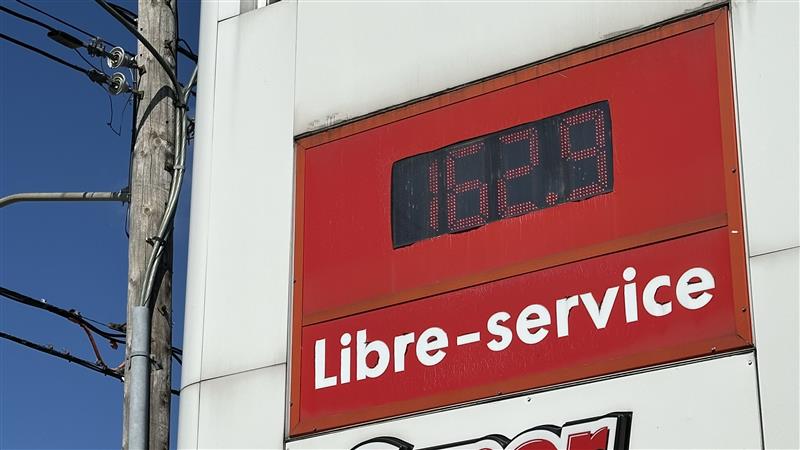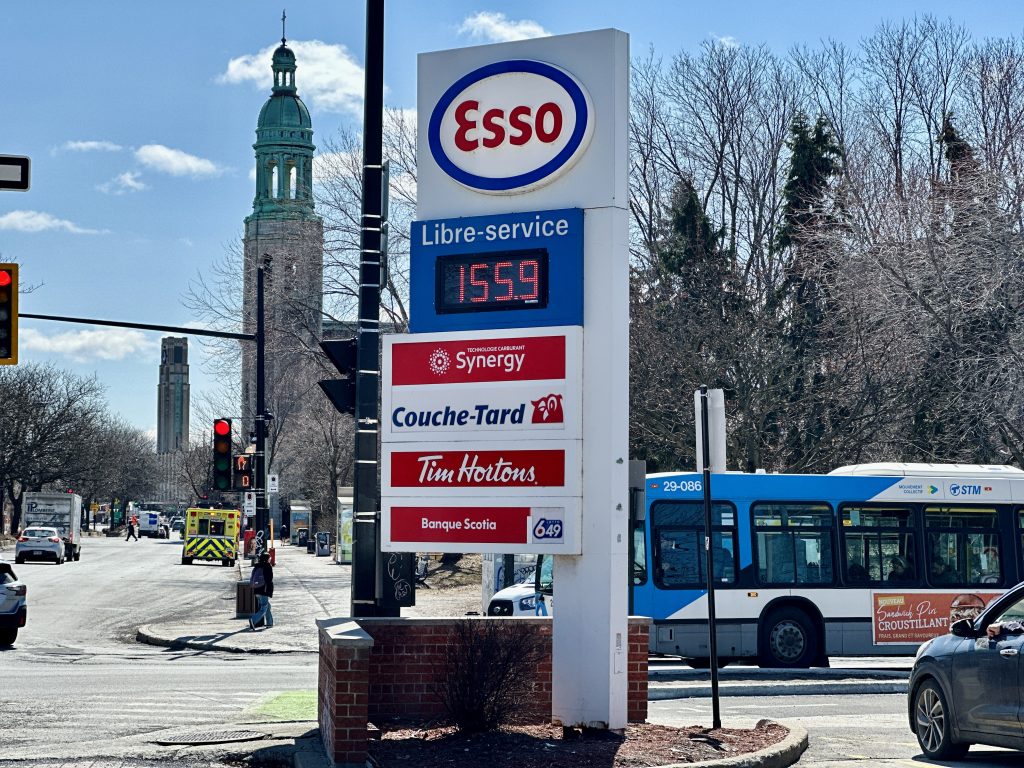Quebec last province with price on carbon, how long will it last?

Posted April 1, 2025 5:15 am.
Last Updated April 1, 2025 5:30 pm.
As Quebec becomes the last province in Canada that hasn’t abandoned carbon pricing, the provincial government could start feeling pressure to align itself with the rest of the country.
There has long been a broad consensus in Quebec on the need to reduce greenhouse gas emissions, and the province’s cap-and-trade system, launched in 2013, has never been especially controversial.
But some say Prime Minister Mark Carney’s decision to scrap the federal consumer carbon price could change that — especially once Quebecers notice the difference at the pump.
“For many other Canadians, it’s a day of a lot of happiness as they’re watching pump prices plummet, but not so much for Quebec,” said Patrick De Haan, the head of petroleum analysis at Gas Buddy. “Politicians in Quebec are likely to see more pressure as consumers start to realize gas prices are becoming more expensive in Quebec compared to everyone else.”
As of Tuesday, the federal carbon price, which applied in most provinces and territories, has officially been scrapped. British Columbia, which was the first province to impose its own carbon price in 2008, has also repealed its tax.
#WATCH: "It's a day of a lot of happiness [for many Canadians] as they're watching pump prices plummet, but not so much for Quebec," said Patrick De Haan, Head of Petroleum Analysis at Gas Buddy about Canada's carbon pricing.
— CityNews Montreal (@CityNewsMTL) April 1, 2025
READ: https://t.co/icWiMMMmQu pic.twitter.com/Strzw5FYfx
Asked Monday about whether he should act in kind, Premier François Legault said he would wait to see the outcome of the April 28 federal election. “We definitely have to be competitive,” he told reporters during a trip to Germany.
He added that Quebec’s cap-and-trade system “ultimately costs less for the consumer” than the federal carbon price did.
CityNews reached out to Quebec’s Environment ministry, but did not hear back in time for publication.
With the federal measure now gone, however, critics of carbon pricing say it’s only a matter of time before Quebecers start to feel pain at the pump. “When we compare prices between Gatineau or Montreal and Ottawa … that difference is going to be striking,” said Carol Montreuil, a vice-president with the Canadian Fuels Association.

“I think a lot of people are going to be questioning whether maybe it’s time to put a pause on that (cap-and-trade) system.”
He said many Quebecers will be “looking at the government for a break,” especially with the added burden of U.S. President Donald Trump’s tariffs.
“It’s a unique system where initially there were supposed to be many provinces and many states joining the system called cap and trade and, and that never worked,” said Montreuil. “Now that being said, that carbon tax, what is public and what is known, collects upwards of $1.3 billion.”
The carbon taxes go into Quebec’s Electrification Fund–financing projects that remove greenhouse gas emissions.
“The record of spending money in this electric electrification file hasn’t been really good over the last several months where we’ve seen. Companies like Nord Volt, lion Electric, tiger Electric, name it that I’ve, that I’ve all gone bankrupt or kind of bankrupt over the last several months,” said Montreuil.
It’s hard to predict exactly how Quebec gas prices will compare to the rest of the country in the absence of the carbon price. In 2024, the federal levy accounted for 17.6 cents per litre of gas. Quebec’s cap-and-trade system, which is linked to California’s, currently costs around 10 cents per litre.
But Pierre-Olivier Pineau, chair of energy sector management at HEC Montréal, the business school of Université de Montréal, cautioned that people outside Quebec won’t necessarily see gas prices drop by a full 18 cents on Tuesday. “At least for a transitional period, the distributors and the service stations will keep a larger profit margin,” he said.

On March 31, the website GasBuddy.com showed Quebec as having an average gas price of around $1.53 per litre — among the lowest in the country. The average price in B.C. was a full 25 cents higher, around $1.78 per litre.
In Verdun, gas was at $1.63 per litre – in St. Hubert at $1.57 – compared to gas in Hawkesbury, Ontario, which was at just under $1.20 on Tuesday.
One thing is clear, said Nicolas Gagnon, Quebec director of the Canadian Taxpayers Federation. “Quebec will be going from one of the places where gas is relatively affordable right now to one of the places where the price is the highest in the country,” he said.
Gagnon is hoping to seize this “window of opportunity” to pressure the Quebec government to abolish its carbon price.
But Normand Mousseau, a physics professor at the Université de Montréal and scientific director of an energy institute at the university, pointed out that no major political party in Quebec has come out against the cap-and-trade system. He said it’s unlikely Quebecers will pay much attention to gas prices in neighbouring provinces.
“There’s a consensus in Quebec that climate issues are real and we must do something,” he said. “So I find it hard to see it becoming a political issue right now.”
Pineau said if the government does start to feel pressure on carbon pricing, it could always choose to redirect some of the revenue from the carbon market to taxpayers. Currently, the money goes to Quebec’s electrification and climate change fund, to be spent on programs that reduce emissions.
Quebec’s Carbon tax–also called “cap-and-trade,” is one of six taxes that Montrealers pay at the pump.

That’s another way Quebec’s carbon price is distinct from the federal system, which returned most of the revenue directly to households.
“Really, yes, it should be removed because the prices have been going up over the years and everything is becoming very unaffordable,” said a Quebecer CityNews spoke to.
But Pineau added that one of the reasons Quebec’s cap-and-trade system hasn’t become a political lightning rod may just be that it’s more complicated than a carbon levy, and the cost is less obvious.
“If you don’t understand something,” he said, “it’s difficult to be against it.”








